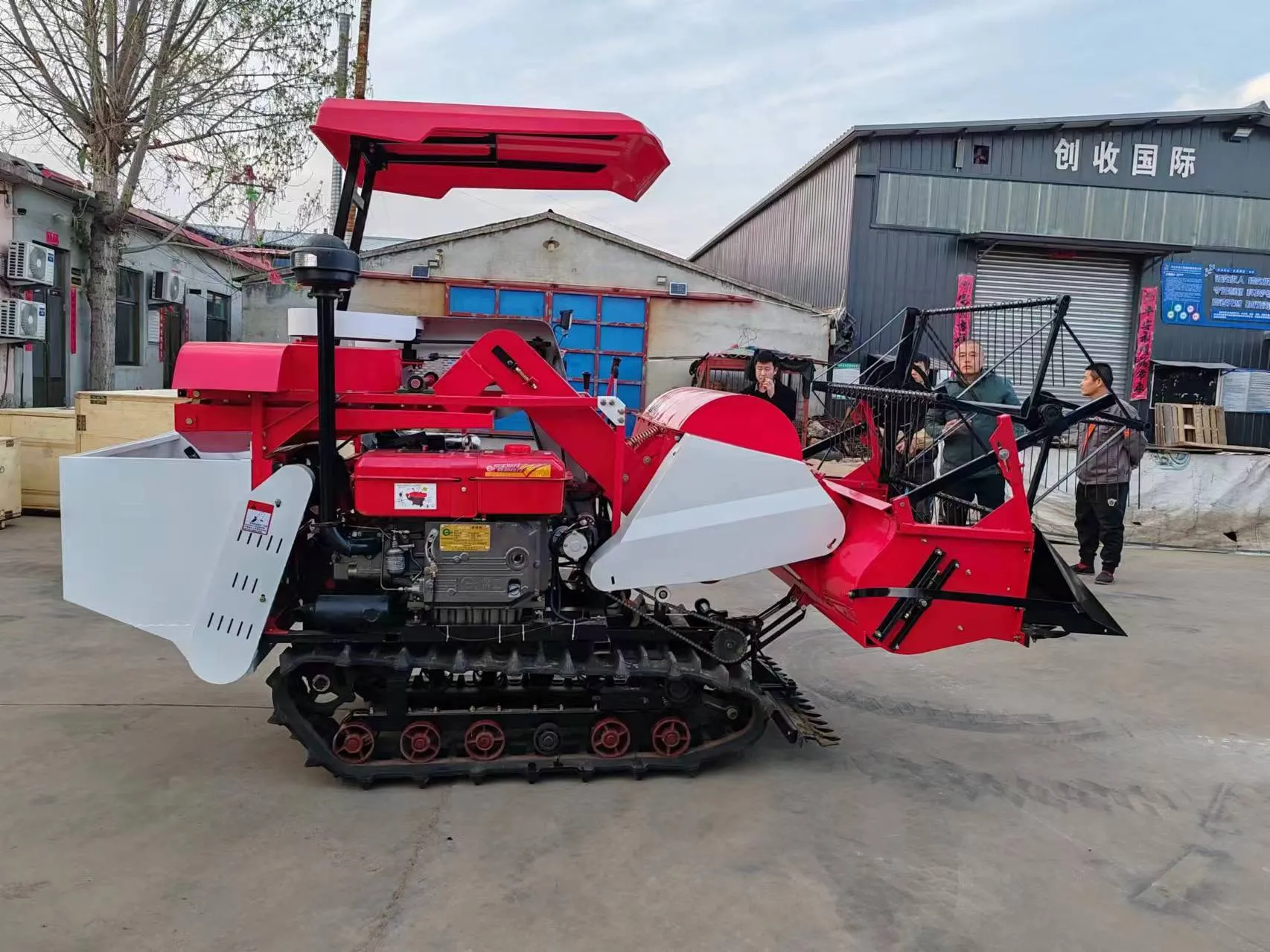Compact Multi-Crop Mini Combine Harvester for Efficient Farming Solutions
The Rise of Multi-Crop Mini Combine Harvesters A Revolution in Agriculture
In the ever-evolving field of agriculture, efficiency and innovation are paramount. One of the groundbreaking advancements in recent years is the introduction and widespread adoption of multi-crop mini combine harvesters. These compact machines are designed to cater to small and medium-sized farms, making them a game-changer for farmers seeking productivity without compromising on quality.
Understanding Multi-Crop Mini Combine Harvesters
Multi-crop mini combine harvesters are versatile machines that are capable of harvesting various types of crops. Unlike traditional combine harvesters, which are often large, expensive, and suited for vast expanses of land, mini combine harvesters are smaller in size and can operate effectively in tighter spaces. This makes them ideal for smallholder farmers, particularly in regions where land is limited and labor costs are high.
Typically powered by a small diesel engine or sometimes electricity, these machines come with adjustable settings, allowing operators to switch between different crops such as rice, wheat, corn, and beans. The design incorporates advanced technology, including threshing, separating, and cleaning systems, ensuring that farmers can maximize their yield and minimize losses during the harvesting process.
Benefits of Multi-Crop Mini Combine Harvesters
1. Increased Efficiency One of the primary advantages of using a mini combine harvester is the significant reduction in harvesting time. Traditional methods can be labor-intensive and time-consuming; however, these machines can complete the task in a fraction of the time. This efficiency is critical during the harvest season when timely collection of crops can impact the overall yield.
2. Cost-Effectiveness For small and medium-sized farms, investing in a mini combine harvester can lead to long-term savings. While the initial purchase may require capital, the reduction in labor costs and improved harvest quality can result in increased profitability. Moreover, their fuel-efficient engines contribute to lower operational costs.
multi crop mini combine harvester

3. Versatility The ability to switch between different crop types is a significant feature that sets multi-crop mini combine harvesters apart from traditional harvesters. Farmers can cultivate and harvest a diverse range of crops without the need for multiple machines, simplifying operations and reducing the need for extensive machinery investment.
4. Easier Operation and Maintenance Many mini combine harvesters are designed with user-friendly interfaces, allowing operators with minimal training to operate the machines effectively. Additionally, their design often includes features that make routine maintenance simpler and quicker, reducing downtime and enhancing reliability.
5. Sustainable Farming These machines contribute to sustainable agricultural practices by reducing the amount of time crops spend in the field post-maturity, which minimizes losses from pests and adverse weather. Furthermore, by enabling farmers to efficiently collect straw and other crop residues, mini combine harvesters promote better soil management practices.
Challenges and Considerations
While the benefits are substantial, the adoption of multi-crop mini combine harvesters is not without challenges. Initial costs can still be a barrier for many smallholder farmers. Additionally, proper training for operators is essential to ensure that the machines are used efficiently and safely. Moreover, access to repair services and spare parts can be limited in some remote areas, adding to the operational risks.
The Future of Mini Combine Harvesters
As technology continues to advance, the future of multi-crop mini combine harvesters looks promising. Innovations in automation, such as GPS-assisted navigation and autonomous harvesting features, are on the horizon, further enhancing productivity and ease of use. The continued focus on sustainable agriculture will only serve to bolster the relevance of these machines in modern farming practices.
In conclusion, multi-crop mini combine harvesters represent a significant leap forward in agricultural technology. They empower small and medium-sized farmers to enhance their productivity, reduce costs, and diversify their crop production. As the global demand for food continues to rise, these machines are likely to play an increasingly vital role in shaping the future of sustainable agriculture, ensuring food security for generations to come.
Latest news
-
When to Upgrade Your Old Forage HarvesterNewsJun.05,2025
-
One Forage Harvester for All Your NeedsNewsJun.05,2025
-
Mastering the Grass Reaper MachineNewsJun.05,2025
-
How Small Farms Make Full Use of Wheat ReaperNewsJun.05,2025
-
Harvesting Wheat the Easy Way: Use a Mini Tractor ReaperNewsJun.05,2025
-
Growing Demand for the Mini Tractor Reaper in AsiaNewsJun.05,2025







